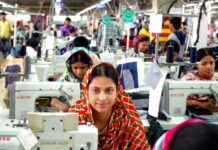Developing Asia is benefiting from the trade war — except India
Erratic policies and limited reforms are deterring companies from investing in India
AEIdeas blogpost
Asia’s developing countries are reaping the benefits of the US-China trade war, according to a new report by the Asian Development Bank. Exports to the US from Vietnam, Bangladesh, and Taiwan are up by as much as 33 percent, and Thailand, Malaysia, and others are gaining, too. Absent from this list is India, which, after five years of erratic policy-making and insufficient reforms under Narendra Modi, is seeing its slowest growth since 2013. India now faces factory holidays and layoffs while its neighbors race ahead.
The Modi government’s recent actions indicate that it understands what ails India but won’t fix it. Take India’s 27 state-owned banks: bogged-down with non-performing loans, they can’t lend to Indian businesses. In August, the government announced a plan to consolidate ten of them into four to improve their governance and liquidity. Just three weeks later, the government announced “loan fairs,” where public sector banks will set up tents across the country to hand out loans to underbanked areas. They are a recipe for generating bad debt.
The government’s tax policy has been confused and erratic. Despite indicators of a slowing economy and rising unemployment, the new budget dropped taxes for all but the highest earning companies (the biggest employers) and dramatically raised taxes on incomes over $275,000. Faced with massive capital withdrawals and a torrent of criticism, the government reversed the income tax hike and later dropped corporate tax rates. Its fiscal target is now impossible to reach, raising new concerns.
More problematic than tax policy or government banks are India’s distorted land and labor markets. Overprotective labor laws prevent large companies from firing workers, preventing the growth of productive firms. On the Heritage Institute’s Economic Freedom Index, India scores more than a third lower than (communist) Vietnam or Bangladesh for labor freedom. Poor land regulation makes property acquisition difficult and costly, deterring Greenfield investment. This translates to millions of Indians toiling on unproductive farms instead of in factories.
Perhaps most frustrating is that Modi’s government could fix the economy but has simply chosen not to. It came to power on a pro-growth, pro-business platform in 2014 and has had a parliamentary majority since then. Yet its reforms have been limited and sloppy, like one of the world’s most complex goods and services taxes, or a bankruptcy law that gave extreme powers to tax officials. Economists roundly derided the government’s 2016 demonetization as an economic disaster. Moreover, while the government boasts that India jumped 23 places in the World Bank’s Ease of Doing Business rankings last year, it still ranks in the world’s bottom half for starting a business and enforcing contracts.
As AEI’s Derek Scissors recently pointed out, if India so chose, its geography and demography could make it an unparalleled investment destination. That makes its failures all the worse. India’s bad policies are keeping millions of its people in poverty while its neighbors’ good ones are lifting millions out.









